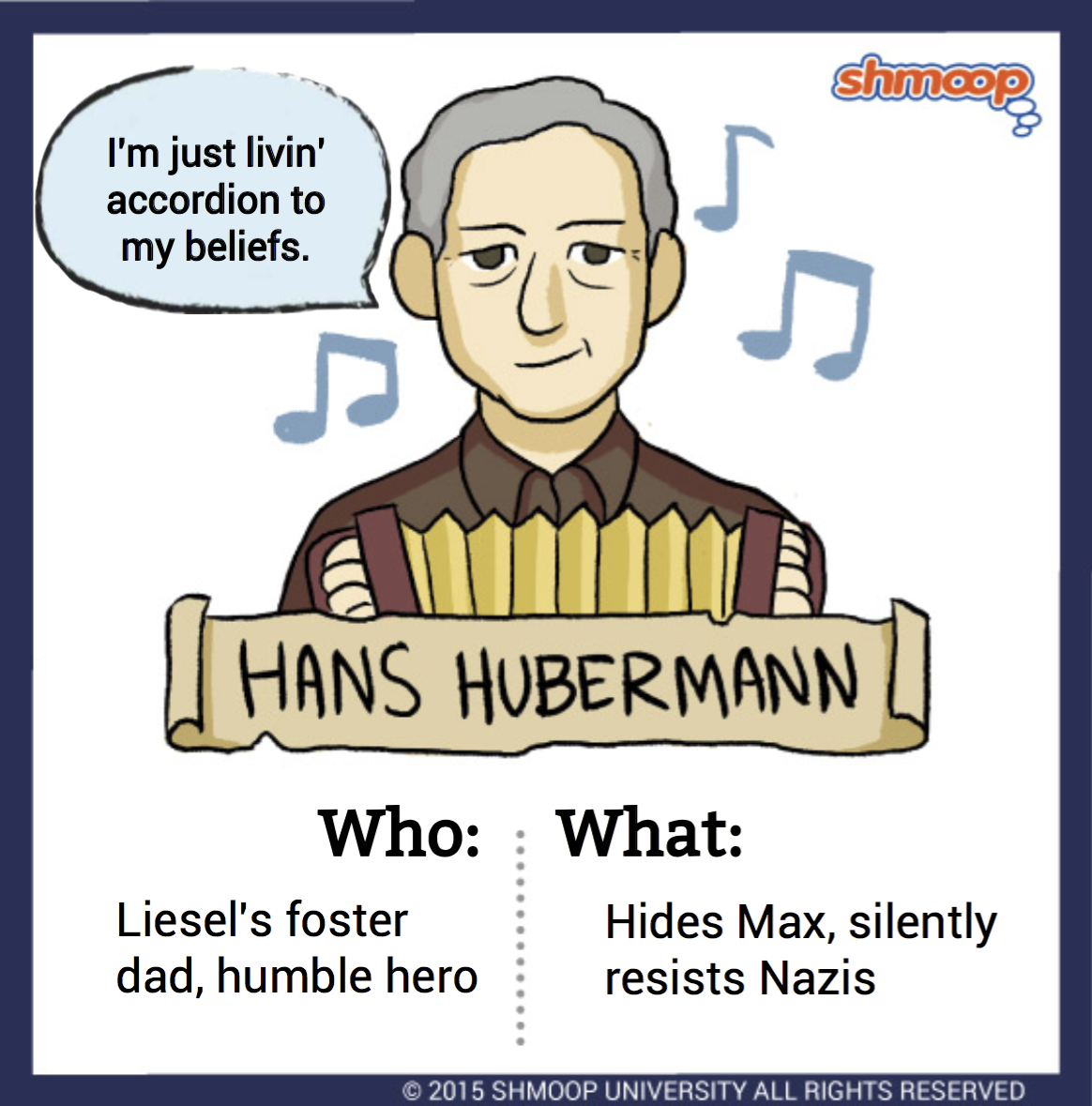Character Analysis

(Click the character infographic to download.)
Hans Is The Man
We all wish we had a father figure as crazy-awesome as Hans. He's warm-hearted, totally morally upright, strong and compassionate. Oh yeah—and he plays a mean accordion.
Not surprisingly, Hans is Liesel's foster father and one of the great loves of her life. He's just... a super nice guy. Early in the novel, this is how Death describes him:
To most people, Hans Hubermann [is] barely visible. An un-special person. […] Somehow […] and I'm sure you've met people like this, he was able to appear as merely part of the background […]. He was always just there. Not noticeable. (1.22)
Considering how memorable a character Hans is, Death's statement might seem a bit puzzling at first. But, we see what he means. If we saw Hans walking calmly through town, swinging his paint cans and harmonica, we might not see the hero inside him. We might see just another poor man in a dreary, poor town.
But there's more to Hans. Perhaps, it's his gentle humility that hides him from the attention of most. And Hans' ability to be "[n]ot noticeable" (1.22) is a huge asset in this novel. A flashier guy might not have been able to successfully hide a Jew in his basement during the Holocaust. Even when Hans is caught giving bread to the Jewish prisoners marching to Dachau, the authorities don't search his house. Why? Because they can't imagine he would go that far.
Hans has true strength of character, as shown by his hiding of Max and his other acts of resistance against the Nazis. These acts, along with his general kindness, have a huge effect on Liesel and even on Rudy. Hans gives them a positive role model—he's a rare example of an adult that truly sets an awesome example.